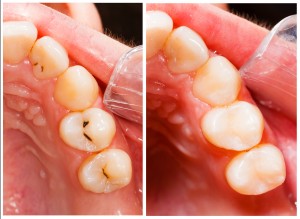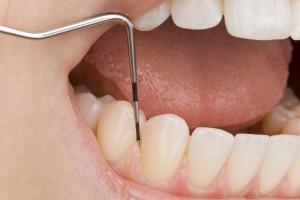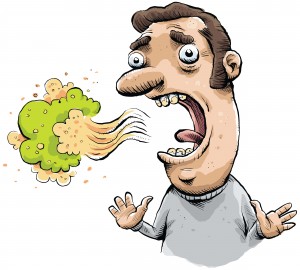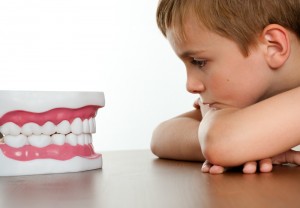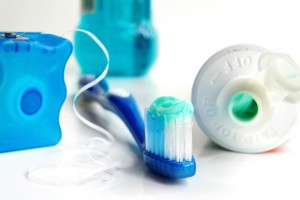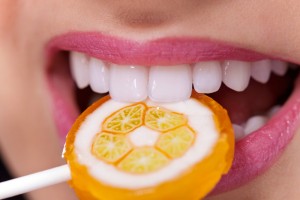While many Americans are able to say that their oral health is relatively healthy or, at least, looks relatively healthy, there are many that cannot say the same. There are numerous disadvantages of poor oral care. For example, oral health is taken into account when potential employers are planning to hire even the most minute employee for lower scale positions. This is an overlooked fact by the Americans that do not suffer from this particular physical problem. Of course, unemployment is not the only thing to stress about when your mouth is not properly taken care of. There are many diseases that accompany underprivileged mouths that can not only harm the body, but possibly cause death. In fact, a 12-year-old boy from Maryland died from a tooth infection because his mother could not afford to take him to the dentist. Emergency visits to the ER due to oral health have skyrocketed these past few years. Why is all of this happening? It seems that dental insurance and the high cost of regular dental visits play an extremely large factor. Continue reading
Why Denying Yourself Dental Care Due to Cost is the Worst Course of Action
The Link Between Oral Health and Medical Illness
Your oral health is more important than you might realize. Your dentist can tell a lot about your overall health from your oral health, and regular cleanings may even give you your first warning that something else is wrong. Your general health can also impact your oral health in some unexpected ways. Regular check ups and cleanings are important to maintaining not only your healthy smile but your overall well-being.
Your mouth gives dentists clues to other health issues like diabetes, oral cancers, heart disease and more. These diseases affect your oral health, and sometimes your dentist is the first to notice the signs so that you can seek other medical treatment to address these diseases. Signs of other health conditions can include swollen or bleeding gums, chronic bad breath, bone loss noted in dental x-rays and chronic jaw pain that is not otherwise explained. Even something as simple as recurrent canker sores inside the mouth can hint at gastro-intestinal or reflux problems. Continue reading
Avoiding Tooth Decay and Cavities
Practicing good dental hygiene does not have to be difficult. Forming good habits now will give you a lifetime of healthy teeth and gums. This article will give you tips to help you prevent tooth decay and cavities.
Brushing and Rinsing
Clean your teeth with either floss or an interdental cleaner every night. After flossing, brush your teeth with fluoride-containing toothpaste first thing in the morning and before you go to bed. Ideally, you should brush after every meal. If you can’t get away to brush your teeth, flush out your mouth with water after you eat.
Every person should rinse their mouth with mouthwash at least twice a day. To prevent cavities, your dentist may recommend that you start using a rinse that contains fluoride.
Eating and Drinking
When you drink a beverage that is not water, the bacteria in your mouth makes acid that can wreak havoc on your tooth enamel. Avoid excessive snacking and drinking throughout the day. Snacking and drinking sugary beverages can endanger the health of your teeth. Continue reading
Gum Disease: An All-Too-Common Problem
Most people brush their teeth regularly and floss occasionally, feeling that is all they need for good dental health. However, that is not exactly the best practice to ensure all of the mouth tissues will be fine. Gum disease is a growing problem that starts with inflammation but can lead to severe results, including tooth loss. Here are some of the common reasons so many people are experiencing gum disease.
Sugary foods and acidic beverages.
Food product labels often include sugar even in foods that are not necessarily sweet. Sugar consumption can climb to ten pounds or more per person every year. As a substance that leaves a sticky residue on teeth and gums, sugar contributes to the development of plaque, which, without brushing or rinsing, leads to inflammation and tooth decay. Acidic beverages like soda can erode teeth and irritate gum tissues over time, leading to serious health issues eventually. Continue reading
Why Do We Have Morning Breath?
It happens every morning. The dreaded alarm goes off, offering the start of a brand new day. You hit snooze– that should buy you a little time. In an act of ultimate procrastination, you stew around in your warm bed in a race to soak up its last bits of comfort before the impending bell tolls for the second time, this time commanding you to get up. Could there be a more aggressive way to wake someone up in the morning? You take a deep, anticipatory breath and are instantly reminded that there could be. Your exhale has lingered, and it taunts you into shamefully covering your mouth in order to spare the room’s fresh air and/or your sleeping partner. You spring to your feet and head straight to the bathroom faucet to remedy the force that has both rivaled your alarm clock and shocked you into a full state of consciousness– your morning breath.
To put it simply, morning breath is nothing more than bad breath, or halitosis. Halitosis is a common problem with a variety of causes, ranging from simple diet and lifestyle choices to more complex oral health and medical conditions.[1] Chronic issues with halitosis are not very common. Still, almost all of us wake up with some type of bad breath. But why in the morning? Continue reading
Beyond Teeth: What’s Inside Your Mouth
It takes but a quick look inside of the mouth to see that there’s more to it than the teeth. There’s the tongue, a bundle of supple muscles that extends from the floor of the mouth. The front of the tongue is anchored by a bit of tissue called the frenum, while the back of the tongue is attached to the hyoid bone. The tongue is of course vital for helping people chew and swallow their food, and contains papillae and taste buds. The tongue also plays a vital role in speech. On average, the tongue of a human is about four inches long.
Also in the mouth cavity is the hard palate, which is the bony front part of the roof of the mouth, and the soft palate, which is the soft part found in the rear. The hard palate creates a partition between a person’s mouth and their nose. The soft palate curves down at the back of the mouth to form a partition between the mouth and the pharynx. The uvula is that structure that looks like a punching bag at the end of the soft palate. Though it helps somewhat with speech, scientists aren’t really sure why the uvula evolved. Continue reading
Dental Sealants Could Save Your Teeth
Cavities are a common and uncomfortable tooth problem. They cause pain and can be quite expensive to repair. Prevention is the best approach to avoiding cavities, and dental sealants are an excellent choice.
How Cavities Form
A cavity is a part of a tooth that has suffered damage, resulting in openings and holes. Cavities occur due to poor brushing habits, consuming snacks and sweet drinks or by having a buildup of bacteria in the mouth. While they can happen to anyone, cavities are more common in older adults. If they are not properly treated, they become larger and may result in tooth loss.
How Dental Sealants Work
Sealants work by getting into cracks and grooves in the teeth that are difficult to reach through brushing. Made up of plastic resins, sealants form a hard, smooth cover that is less likely to store harmful bacteria and plaque. This makes it easier to keep the teeth clean and healthy. Continue reading
Different types of toothpaste – What do they mean?
Choosing a type of toothpaste for your family can be confusing with all the different types of toothpaste available today. Understanding how different types of toothpastes work and what ingredients to look for can help you when sorting through the numerous options on store shelves.
Most toothpaste contains fluoride, and with good reason: Fluoride strengthens tooth enamel and fights cavities and tooth decay. The American Dental Association recommends brushing twice a day with fluoride toothpaste. Almost without exception, everyone should use fluoride toothpaste. There are very rare cases of people experiencing an allergic reaction to fluoride, but the majority of people of all ages will benefit from fluoride.
Some types of toothpaste fulfill a specific need or desire, such as whitening toothpaste or toothpaste for sensitive teeth. Whitening toothpaste usually contains abrasives that scrub stains away, rather than bleach or other whitening agents. According to WebMD, studies have found that these toothpastes are gentle enough for everyday use and do not harm tooth enamel. Continue reading
Why is Candy Bad For Your Teeth?
Sometimes a sugary treat is necessary, but eating too much candy can create life-changing damage to the teeth. Here are a few different reasons and explanations on the way that certain candies can damage your teeth.
The Sugar
A bacteria in our mouths,”streptococcus,” loves to feed on the sugar that we knowingly accept is in the candy we enjoy so much. As it feeds on the sugar, it is broken down into acid that eats away at our tooth enamel. The longer that the sugar lingers in your mouth, the more exposure to acid. Brush your teeth or drink some water to make sure that the teeth have a quick rinse from the sugar and that the candy is not stuck in the crevices of your molars. Continue reading
What Does Your Smile Say?
In the United States, we smile when we’re happy or when we want to covey warmth and friendliness to another. Because it comes so naturally to us when we’re happy, it’s easy to think of smiling as a universal human gesture. Not all cultures interpret smiles in the same way, however, and some may even take it as a sign of sadness.
In many Asian societies, smiling is viewed as a frivolous activity and indicates that you are not taking a situation seriously. According to the Retrospectacle neuroscience blog, this belief is so prevalent that Koreans are known for their common saying, “He who smiles a lot is not a real man.” Smiling is also used to convey embarrassment, sadness, confusion and even anger in Asian cultures and is used to smooth over awkward situations. In China, smiling in greeting is acceptable, but you should do so with your mouth closed, since a wide, toothy grin is often viewed as silly and a bit daft. Continue reading



